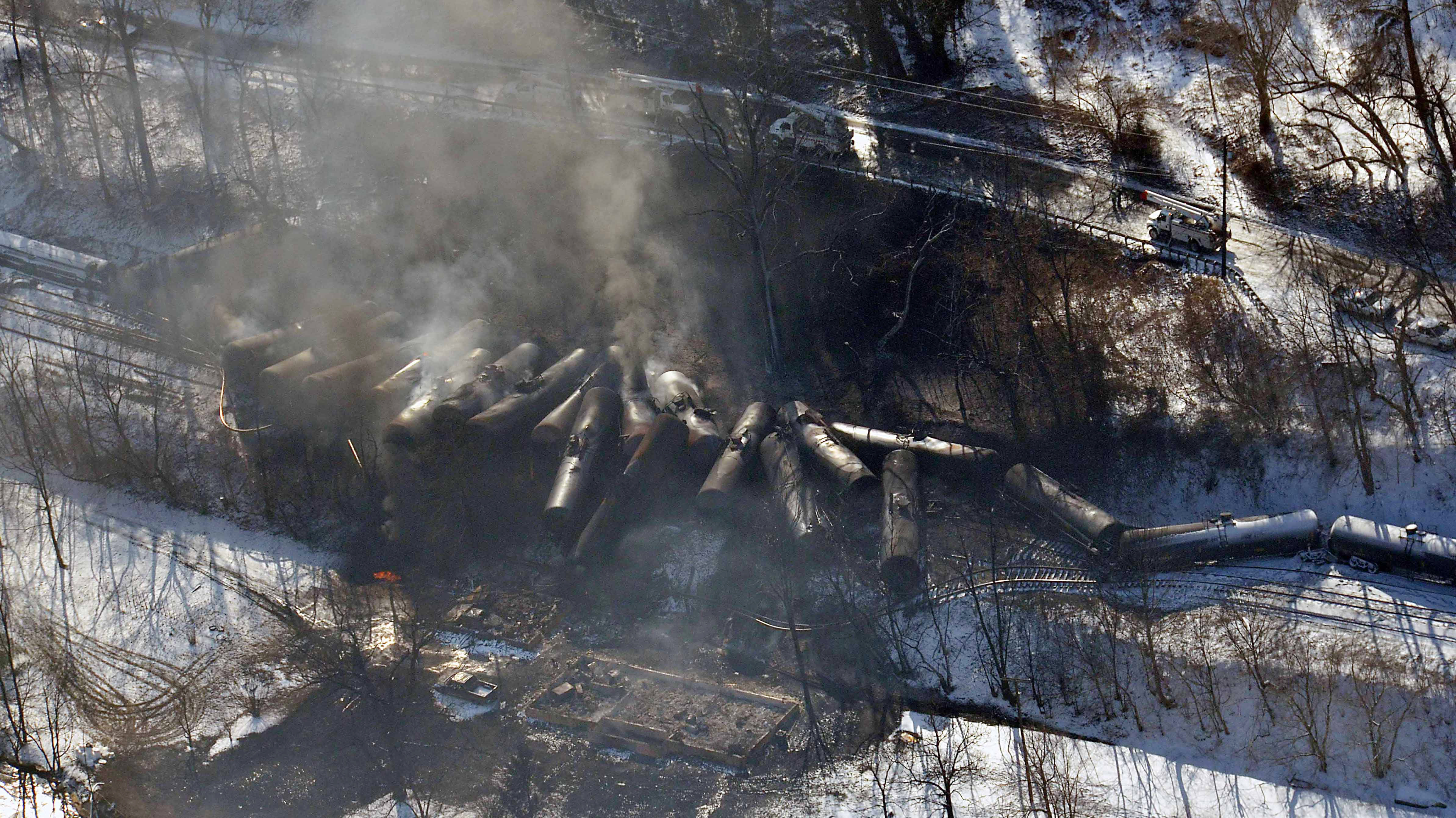In the past four weeks, there have been four train derailments, four explosions, and four terrifying examples of communities and lives at risk from crude oil trains. As a consequence, crude oil has spilled into waterways, potentially contaminating drinking water, hundreds of people have had to evacuate their homes, and fires have burned for days.
With so many derailments and explosions from crude oil trains, it seems like train car disasters are the new normal. But why? An exponential increase in oil extraction via fracking in North Dakota has led to a surge of crude oil travelling by rail in recent years. This extreme form of energy extraction produces highly flammable and explosive oil that simply can’t be transported safely, yet more and more is moving through our communities every day. A lack of publicly available information on crude by rail, weak federal oversight, and limited emergency planning only add to the problem.
However, there is good news: states and cities across the country are responding to citizens’ concerns, and taking action to shed light on this dangerous practice.
Now Maryland is joining in the fight. Delegate Clarence Lam (D-12) is the lead sponsor of House Bill 1073, which addresses some of the problems listed above. This bill was introduced in response to recent derailments and the potential threat of a new crude oil shipping terminal in Baltimore, proposed by Texas-based Targa Resources. If the terminal is approved, the city of Baltimore and rail communities throughout Maryland could face a new surge of over a million gallons of explosive crude oil every day, which you can read more about in my previous blog post. The bill would require Maryland state agencies to study risks and impacts in the event of a crude oil spill during rail transport. On top of that, the bill would also require rail companies to disclose the amounts and routes of crude oil transport throughout the state, something rail companies are currently suing the state of Maryland to keep secret.
The bill so far has received a broad array of support from community members, neighborhood associations, Democrats, Republicans, railroad employees, and environmental groups alike. Last Wednesday, during a hearing in Annapolis, I testified in favor of the bill, along with Delegate Lam, Ana Rule (a PhD researcher at Johns Hopkins), and Will Fadely from Clean Water Action. The bill garnered no testimony in opposition.
With oil train disasters happening on a seemingly weekly basis, it’s clear that urgent action should be taken. This bill is a common-sense first step forward to shed light on the risks in Maryland. It’s not a question of what to do “if” a crude oil train derails and explodes, it’s a question of “when” a train derails and explodes in Maryland, where would it happen, and how can we make sure all emergency responders are prepared.
Of course, we are continuing to work as hard as we can to make sure crude oil doesn’t flow through Baltimore. At a minimum, if passed, Del. Lam’s bill will give citizens, elected officials, and emergency responders basic information about the scope of the risks.
Click here to keep up the pressure on the Baltimore City Council and Mayor Stephanie Rawlings-Blake: Keep Crude Oil out of Baltimore!





